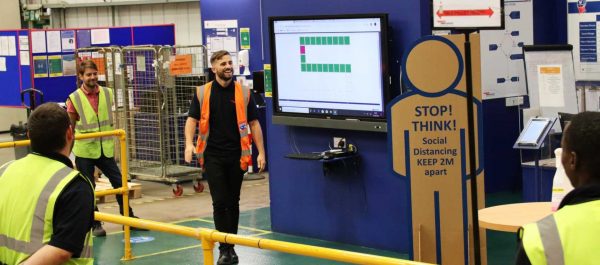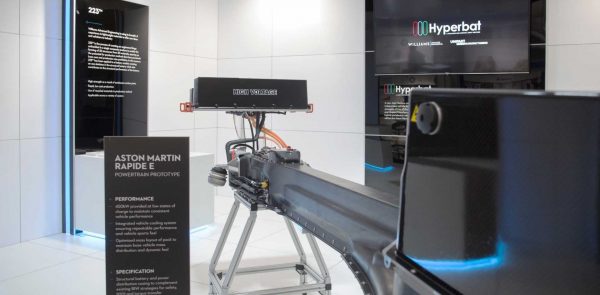 17 August 2020: The world post-Covid-19 is an opportunity to build on the increased momentum regarding the electrification of the automotive market. At the heart of this transformation lies battery technology and battery safety, and now is the time for EV players to collaborate with a manufacturing and logistics partner of proven safety success. Richard Hankinson reports.
17 August 2020: The world post-Covid-19 is an opportunity to build on the increased momentum regarding the electrification of the automotive market. At the heart of this transformation lies battery technology and battery safety, and now is the time for EV players to collaborate with a manufacturing and logistics partner of proven safety success. Richard Hankinson reports.
Coronavirus has seen safety race to the top of the corporate agenda, but for everyone in the electric vehicle (EV) industry it has always been critical.
Unipart is uniquely positioned in the EV market, being both a manufacturer and an end-to-end logistics partner, so safety is central to our commercial success.
The British Safety Council has named Unipart Logistics the safest company in the UK and Ireland, and among the top companies in the world for transport distribution and storage in the 2020 International Safety Awards.
Unipart has a track record in safety success. Using the tools of The Unipart Way, our philosophy of continuous improvement, Unipart has won 55 coveted Swords of Honour since 2011, more than any other company in our sector.
These credentials are crucial to delivering long-term success in the EV industry, upon which Coronavirus has shone a spotlight.
Electrification was already regarded as the future of the automotive market, but now the world has seen a glimpse of roads without the noise and pollution of internal combustion engines, many see the pandemic as a chance to hit ‘reset’ and focus on sustainable mobility.
The UK market in lockdown reflects this: EV sales have bucked the trend of the steep decline in petrol and diesel sales during the pandemic and are actually higher than in the same period last year.
At the centre of the industry’s electrification are battery technology and battery safety. Hyperbat, Unipart Manufacturing’s joint venture with Williams Advanced Engineering, provides UK-based battery technology and the capability to serve international markets using state-of-the-art manufacturing processes and digital technologies.
 The Hyperbat facility in Coventry, built on the site where some of the first combustion engines were produced more than a century ago, has the capability to manufacture batteries for high-performance road, marine and airborne vehicles to exacting safety standards.
The Hyperbat facility in Coventry, built on the site where some of the first combustion engines were produced more than a century ago, has the capability to manufacture batteries for high-performance road, marine and airborne vehicles to exacting safety standards.
Safety is also a key element when it comes to handling, moving and storing EV batteries. Unipart Logistics’ International Safety Awards success is in no small part due to its end-to-end supply chain specialisation in the electrification of the automotive industry.
To build a portfolio of in-production and aftermarket logistics partnerships with premium automotive brands and their electrification, including Tesla, Jaguar Land Rover, Mercedes and VW Group, Unipart had to prove capability and experience in this field.
That capability and experience saw Unipart Logistics lead Project Detain, a research initiative backed by Innovate UK, which sought to identify how larger numbers of EV batteries could be stored together safely in a smart facility that can detect and contain thermal runaway incidents.
This is not only a challenge where batteries are new, but also when they come to the end of life. The ‘second life’ of EV batteries is an increasing challenge for OEMs, and the industry needs to develop the infrastructure to handle the volume of damaged, faulty or obsolete batteries projected to be returned in the next decade and beyond.
Again, Unipart is uniquely positioned to take on this challenge, bringing to bear its expertise in forward and reverse logistics, and harnessing its battery manufacturing and supply chain experience.
Unipart continues to develop the capabilities to provide end-to-end sustainable solutions for the EV battery life cycle.
As lockdown is eased, people will look forward to the economy opening up again in the safest and most sustainable way possible. For EV players this is an opportunity to build on the increased momentum of the industry with a manufacturing and logistics partner of proven safety success.
Reprinted from The Manufacturer magazine. Click here.